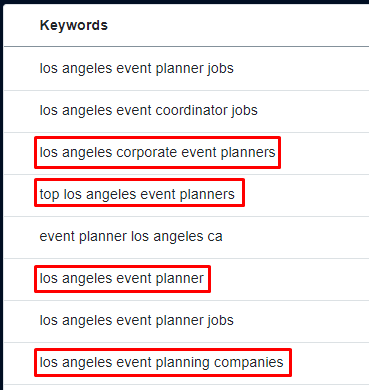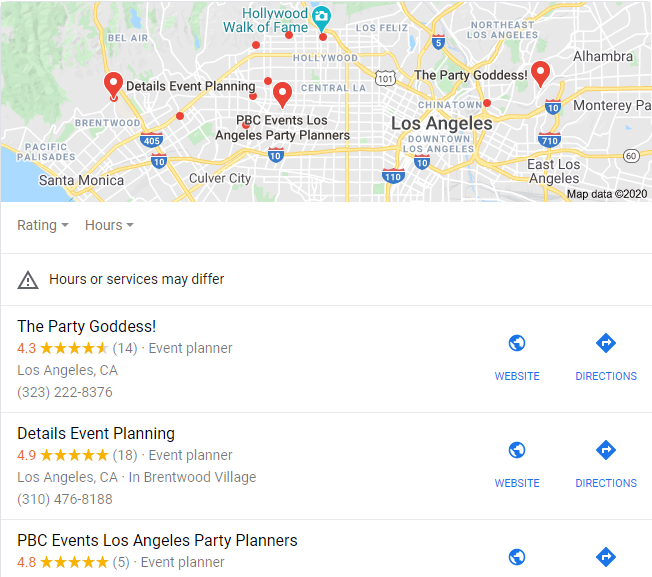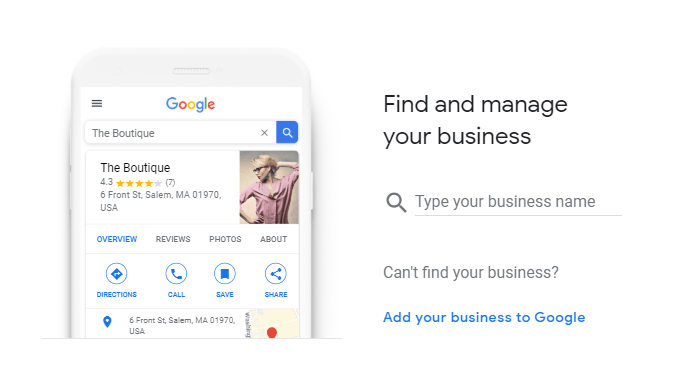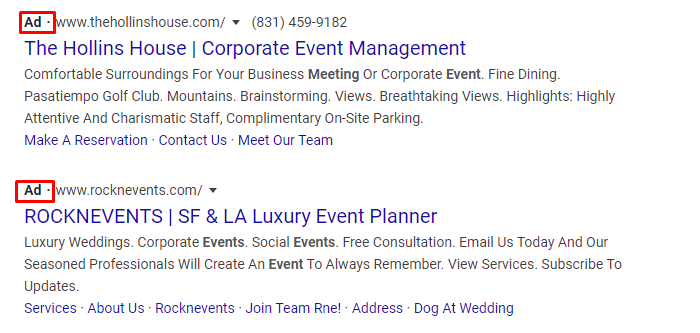-
 10 min. read
10 min. read
-
Summarize in ChatGPT
-
 Macy Storm
Macy Storm Content Marketing Consultant
Content Marketing Consultant
- Macy Storm is a Content Marketing Consultant at WebFX. She has 5+ years of experience creating content for all digital strategies and across 10+ industries. With a B.A. in Communications, she’s used her writing skills to write over 1,000+ pages for WebFX and SEO.com. Her work has been featured by Search Engine Journal, HubSpot, Entrepreneur, Clutch, and more. When she’s not clacking her keys, she’s playing video games, reading, or counting how many times people say her puppy Daisy is cute (it’s a lot of times).
Did you know that 80% of users use a search engine to find local information? People turn to search engines to help them find businesses in their area that offer the products or services they need. To appear in these search results, you need to integrate local keywords into your site to help you rank.
Local keywords are keywords that contain location-specific phrases that generate results related to the same geographic location. These keywords help drive people in your area to your business and play an integral role in optimizing your local search engine optimization (SEO) strategy. So, how do you find local keywords?
On this page, we’ll cover:
- How to find local keywords
- How to pick the best keywords for local search
- Which additional strategies will help you appear in local searches
Keep reading to learn more about local keywords and how to find them. Want to know more about how to find local keywords and appear in more local searches? Enter your URL here to get an instant SEO audit with personalized recommendations for optimizing your website to capture more SEO traffic!
How do I find local keywords?
So, you want to rank in local searches — but how do you find the right keywords to rank in the results?
To find keywords for local search, you need to conduct local SEO keyword research.
Keyword research is the process of identifying popular key terms that will help you appear in search results relevant to your business and target market.
Keyword research tools, like KeywordsFX, will help you find a list of relevant terms. It will generate a list of related keywords. With this list, you can discover ideas for the types of keywords to include on your site.
For example, if you’re an event planner in Los Angeles, you may start by searching “event planner in Los Angeles.” By plugging that information into a free keyword tool like KeywordsFX, you get a list of suggested keywords related to that search. 
From this list, you can pull local keywords you think will help you rank in the right search results. Generally, for local searches, you’ll want to stick to phrases like:
- [business type/product/service] in Los Angeles
- [business type/product/service] Los Angeles
- Los Angeles [business type/product/service]
- Best [business type/product/service] in Los Angeles
So, if you were an event planner, you may see those keywords appear as:
- Event planners in Los Angeles
- Wedding planner Los Angeles
- Los Angeles party planning
- Best event planner in Los Angeles
By conducting local SEO keyword research, you’ll help your business appear in geographically tailored search results so more local leads can find your business.
Alternatively, if your business already ranks for localized search terms, you can use a Google position check tool like Google Search Console to evaluate your existing rankings and prioritize localized keywords from there, like “event planners in [city], [state].”
How do I pick the best local keywords and rank for them?
So, you know you need to conduct local keyword research to find the right terms, but how do you pick the best local keywords? When you conduct keyword research, you get a results page that’s filled with keyword ideas, and it can quickly become overwhelming to try and weed through them. Let’s look at three steps for choosing local SEO keywords that help you drive more local leads.
1. Specify your location
The first, and perhaps most important, step in finding local SEO keywords is specifying your location. You need to establish which areas you want to target for local search. You can target location keywords near your business or where you travel for service.
So, for example, let’s say your event planning business is located in Los Angeles. If you service Los Angeles and neighboring suburbs, you could target locations like Santa Monica and Venice Beach with local SEO too. It’s essential to include all the places you service so that you can reach people in those areas.
2. Focus on industry-related keywords
When you conduct local keyword research, focus on industry-related keywords.
Some companies will try to rank for keywords that aren’t relevant to their business because they have high search volume and drive traffic. The issue with this approach is that those keywords won’t drive qualified leads to your page.
For example, let’s say you notice that “talent agents in Los Angeles,” is a high-volume keyword, so you try to rank for it to increase traffic on your site. Even though your event planning business isn’t a talent agency, you want to increase traffic on your website.
When this traffic gets to your site, these users learn that your website isn’t relevant to their search query. They were looking for a talent agent and didn’t find any talent agents or services on your page. As a result, they bounce from your page and go back to the search results to find a different listing.
So, not only did you not obtain any leads but now you’ve increased your bounce rate. A high bounce rate sends a signal to Google that your page doesn’t fit the search query, so Google will rank your page lower. Lower rankings mean less traffic and reputable leads for your page.
Instead of trying to rank for these irrelevant terms, focus on industry-related keywords. Industry-related keywords will ensure you drive the right leads looking for your products or services. So, if you were an event planner, you might focus on terms like:
- Event planners in Los Angeles
- Los Angeles party planners
- Los Angeles event planner
- Event coordinator in Los Angeles
3. Include keyword modifiers
As you find keywords for local search, you’ll want to add keyword modifiers to some of your terms. Keyword modifiers add more to your core keyword and help expand your reach, so you can drive more relevant traffic and leads. There are four types of keyword modifiers you can use with your keywords:
- Quality: As the name suggests, quality modifiers speak to the quality of your business. These include phrases like “best” or “top.” An example key phrase is “best event planners in Los Angeles.”
- Occasion: Occasion modifiers focus on a specific event or point in time. These include phrases like “fall,” “birthday,” or “Christmas.” An example keyword is “Wedding planner in Los Angeles.”
- Type: The type of keyword modifier focuses on something your business offers. If you were an event planner at a specific venue, you might offer catering or an event hall. An example key phrase is “wedding venues Los Angeles.”
- Special offering: Your business is unique, and you can use special offering keyword modifiers to help people find what’s unique about your company. These keywords can include offerings like same-day shipping, all-inclusive, and more. An example is “all-inclusive wedding venues in Los Angeles.”
These keyword modifiers help you connect with locals who conduct more specific searches.
Going beyond local keywords: Alternatives to local keyword research
Finding keywords for local search is a great starting point for appearing in front of local leads, but it’s not the only option you have. You can drive local leads through other methods, too. Let’s look at two local marketing options you can use to reach more leads in your geographic location.
1. Claim your Google Business Profile listing
When users search local SEO keywords, it generates Google Business Profile listings. These three listings appear in a box, known as the local SEO 3-pack. Many searchers use this feature to find businesses in their area.

So, if someone searches local keywords like “event planner in Los Angeles” or “Los Angeles wedding planner,” it will generate these listings at the top of the search results.
If you want searchers to choose your company, start by claiming your business’s listing.

Once you claim your listing, fill it out completely. Verify that your business’s name and address are correct. You’ll also want to add your phone number to your listing.
Next, add a short blurb about your business and what you offer. Then, add photos to your listing to give people a visual insight into your business. This step is valuable because companies with photos receive 42% more requests for directions and 35% more clicks to their websites than companies without pictures.
After these steps, you’ll have a polished Google Business Profile listing that will start driving local traffic. If you’re looking to save time with updating your Google Business Profile listing, you can use tools like LocalFX to update all your local listings, from Google Business Profile to Yelp to Facebook, easily.
2. Run a pay-per-click (PPC) advertising campaign
Pay-per-click (PPC) advertising campaigns are a great way to attract local leads to your business. These paid advertisements appear at the top of the search results above organic listings. You’ll see them tagged with the word “ad” to indicate paid content.

Did you know that 80% of consumers want ads customized to their city, zip code, and surroundings?
Many searchers are looking for ads specific to their geographic location, so you can help your business reach these leads by creating locally relevant ads. To get started with PPC services, you’ll need to find locally relevant keywords. You can use the keywords you find during local keyword research and integrate them into your ad.
Once you select your keyword, you’ll set your bid amount. PPC ads operate on a system where you pay each time someone clicks. You must determine your bid amount to let Google know what you’re willing to pay when someone clicks your ad.
After setting your bid, create your ad copy. Your ad copy features two parts:
The ad text and landing page.
The ad text is what users see when they find your ad in the search results. Your landing page is what they see after clicking on your ad.
To have a successful PPC ad, you must create a landing page relevant to your ad. If you’re running an ad for the keyword “wedding planners in Los Angeles,” your ad text and landing page should focus solely on your wedding planning services. Keeping your ad focused enables you to deliver a more relevant ad experience, which can help your ad get a better spot in search results.
Once you create your ad copy, launch your ad, and get your placement. From that point forward, you’ll start driving leads for your business.
Start using local keywords today
If you aren’t using keywords for local search, you’re missing a prime opportunity to grow your business. Using local keywords will help you reach more people in your area and drive them to visit your company, which will help you obtain new leads and grow.
If you don’t have the time to research and integrate local keywords, WebFX can help. With over a decade of experience, we know how to optimize your website for local keywords to help you reach the top of local search rankings. From integrating keywords to optimizing your local listing, we can help you do it all.
Check out our local SEO services to learn more about how you can improve your local listing. Give us a call today at 888-601-5359 (or contact us online) to find out how we can help jumpstart your local marketing campaign!
-
 Macy Storm is a Content Marketing Consultant at WebFX. She has 5+ years of experience creating content for all digital strategies and across 10+ industries. With a B.A. in Communications, she’s used her writing skills to write over 1,000+ pages for WebFX and SEO.com. Her work has been featured by Search Engine Journal, HubSpot, Entrepreneur, Clutch, and more. When she’s not clacking her keys, she’s playing video games, reading, or counting how many times people say her puppy Daisy is cute (it’s a lot of times).
Macy Storm is a Content Marketing Consultant at WebFX. She has 5+ years of experience creating content for all digital strategies and across 10+ industries. With a B.A. in Communications, she’s used her writing skills to write over 1,000+ pages for WebFX and SEO.com. Her work has been featured by Search Engine Journal, HubSpot, Entrepreneur, Clutch, and more. When she’s not clacking her keys, she’s playing video games, reading, or counting how many times people say her puppy Daisy is cute (it’s a lot of times). -

WebFX is a full-service marketing agency with 1,100+ client reviews and a 4.9-star rating on Clutch! Find out how our expert team and revenue-accelerating tech can drive results for you! Learn more
Try our free Marketing Calculator
Craft a tailored online marketing strategy! Utilize our free Internet marketing calculator for a custom plan based on your location, reach, timeframe, and budget.
Plan Your Marketing Budget

SEO Success with KOA

Proven Marketing Strategies
Try our free Marketing Calculator
Craft a tailored online marketing strategy! Utilize our free Internet marketing calculator for a custom plan based on your location, reach, timeframe, and budget.
Plan Your Marketing Budget
What to read next




